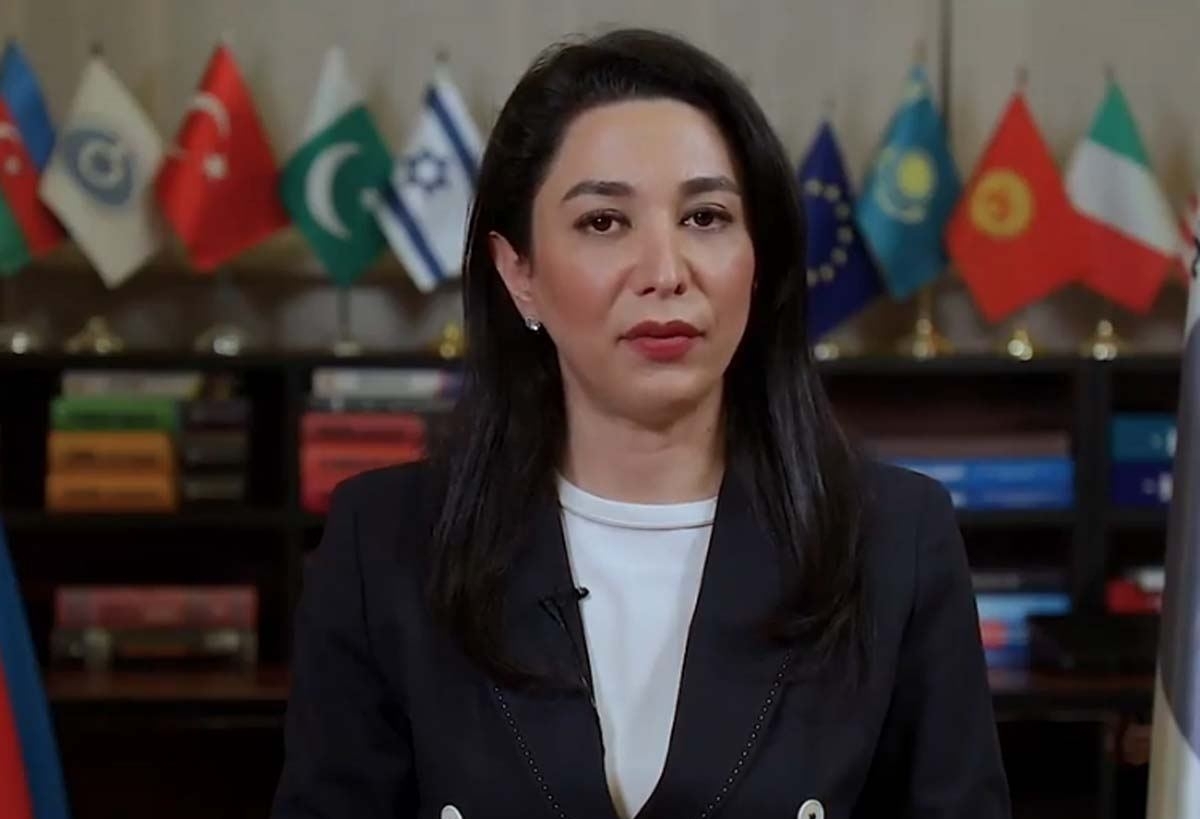



Azerbaijani Ombudsperson issues statement on March 31 - Day of Genocide of Azerbaijanis

Baku, March 29, AZERTAC
Azerbaijani Commissioner for Human Rights (Ombudsman) Sabina Aliyeva has issued a statement on March 31- Day of Genocide of Azerbaijanis.
AZERTAC presents the statement: “Throughout history, Azerbaijanis have been repeatedly and intentionally subjected to ethnic cleansing, genocide, and deportation by Armenia.
One of the horrific genocidal acts committed against our people was perpetrated in March and April of 1918, and this bloody event is engraved in the history of Azerbaijan as 31 March Genocide.
During genocidal acts, 110 villages in Shamakhi County, more than 150 villages in Karabakh, 115 villages in Zangezur County, 98 villages in Kars Province, and 167 villages in Guba County were burned and plundered, and the inhabitants were brutally murdered. 35 of these villages were wiped off the face of the Earth. Iravan city, which is an ancient land of Azerbaijan, and 199 villages around it were destroyed, 132, 000 Azerbaijanis were killed.
Only in Guba County were nearly 16, 000 people murdered. In 2007, the existence of numerous facts of physical violence on human remains in mass graves found as a result of construction excavations in Guba City clearly prove the inhuman acts committed by Armenians against our people in 1918.
It must be noted that the facts of crimes of genocide committed against Azerbaijanis in different periods of history, including 31 March Genocide, are substantiated as time passes. A while ago, the discovery of the human remains in mass graves of people, who were subjected to torture and murdered in various forms in the village of Edilli in the Khojavend district, in Aghdam and Shusha cities, as well as in Khojaly and other liberated territories, can be cited as an example.
The crimes of genocide are based on centuries-long vehement hatred toward Azerbaijanis and unlawful territorial claims. These claims had intensified even further towards the end of the last century, as a result of which hundreds of thousands of Azerbaijanis had been deported from the present territories of Armenia, and 20 percent of the internationally recognized territories of Azerbaijan were occupied by this country.
As a result of the Second Karabakh War, which started on 27 September 2020, and lasted 44 days, as well as local anti-terror operations carried out in September 2023, the territory of Azerbaijan, which had been kept under the occupation of Armenia for nearly thirty years, was liberated and sovereignty was fully restored.
In the early years of the past century, the conveyance of the truths about these brutal acts of genocide committed by Armenian nationalists against Azerbaijanis to the world community and the establishment of political and legal evaluation of this incident became possible only after the return of Heydar Aliyev, the National Leader of our people, to power.
By the Decree “On the Genocide of Azerbaijanis” dated 26 March, 1998, issued by the Great Leader Heydar Aliyev, 31 March is declared the Day of Genocide of Azerbaijanis, and investigations and endeavors to uncover the truth have been encouraged in order to assess the political and legal evaluation of crimes of genocide.
Unfortunately, a fair position regarding the acts of genocide against Azerbaijanis committed with special cruelty, which have been pursued over time in history, has not yet been declared on an international level.
The world community and international organizations should recognize this horrific act of genocide against Azerbaijanis committed in 1918 as a crime of genocide on an international scale and not remain indifferent to the crimes committed against our compatriots throughout history to avoid the reocurrence of such incidents.”
The Statement is addressed to the UN Secretary-General, UN Security Council, UN Office of High Commissioner for Human Rights, UN Office of High Commissioner for Refugees, UN Human Rights Council, the United Nations Children’s Fund, the United Nations Educational, Scientific and Cultural Organization, European Union, Council of Europe, Organization for Security and Co-operation in Europe, International and European Ombudsman Institutions, Asian Ombudsman Association, Turkic states Ombudsman Association, Organization of Islamic Cooperation and the Ombudsman Association of its member states, Independent Permanent Human Rights Commission of the Organization of Islamic Cooperation, European Network of Ombudspersons for Children, International Peace Bureau, foreign ombudsmen and national human rights institutions, embassies of the Republic of Azerbaijan and the foreign embassies in Azerbaijan, the Azerbaijani Diasporas, as well as to various religious communities and confessions.”
Charles Michel welcomes agreement between Armenia and Azerbaijan
Swedish Foreign Minister welcomes agreement on border delimitation between Armenia and Azerbaijan